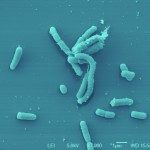Link to Pubmed [PMID] – 32853251
Link to HAL – pasteur-02928741
Link to DOI – 10.1371/journal.pntd.0008251
PLoS Negl Trop Dis 2020 Aug; 14(8): e0008251
Yersinia pestis, the bacterial causative agent of plague, remains an important threat to human health. Plague is a rodent-borne disease that has historically shown an outstanding ability to colonize and persist across different species, habitats, and environments while provoking sporadic cases, outbreaks, and deadly global epidemics among humans. Between September and November 2017, an outbreak of urban pneumonic plague was declared in Madagascar, which refocused the attention of the scientific community on this ancient human scourge. Given recent trends and plague’s resilience to control in the wild, its high fatality rate in humans without early treatment, and its capacity to disrupt social and healthcare systems, human plague should be considered as a neglected threat. A workshop was held in Paris in July 2018 to review current knowledge about plague and to identify the scientific research priorities to eradicate plague as a human threat. It was concluded that an urgent commitment is needed to develop and fund a strong research agenda aiming to fill the current knowledge gaps structured around 4 main axes: (i) an improved understanding of the ecological interactions among the reservoir, vector, pathogen, and environment; (ii) human and societal responses; (iii) improved diagnostic tools and case management; and (iv) vaccine development. These axes should be cross-cutting, translational, and focused on delivering context-specific strategies. Results of this research should feed a global control and prevention strategy within a “One Health” approach.





